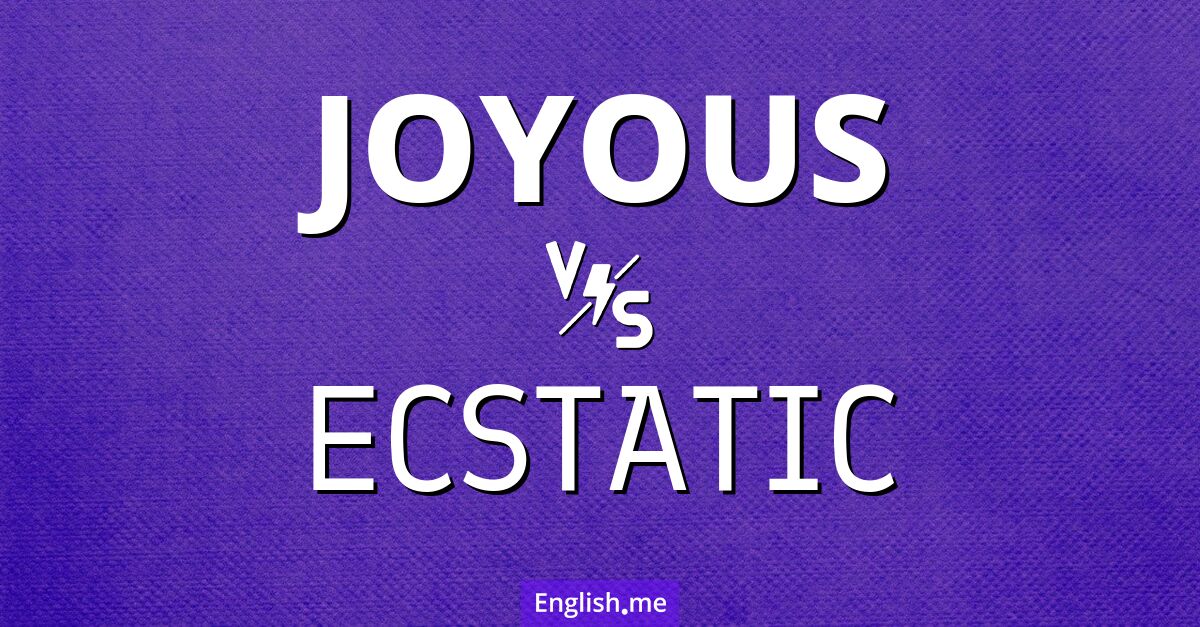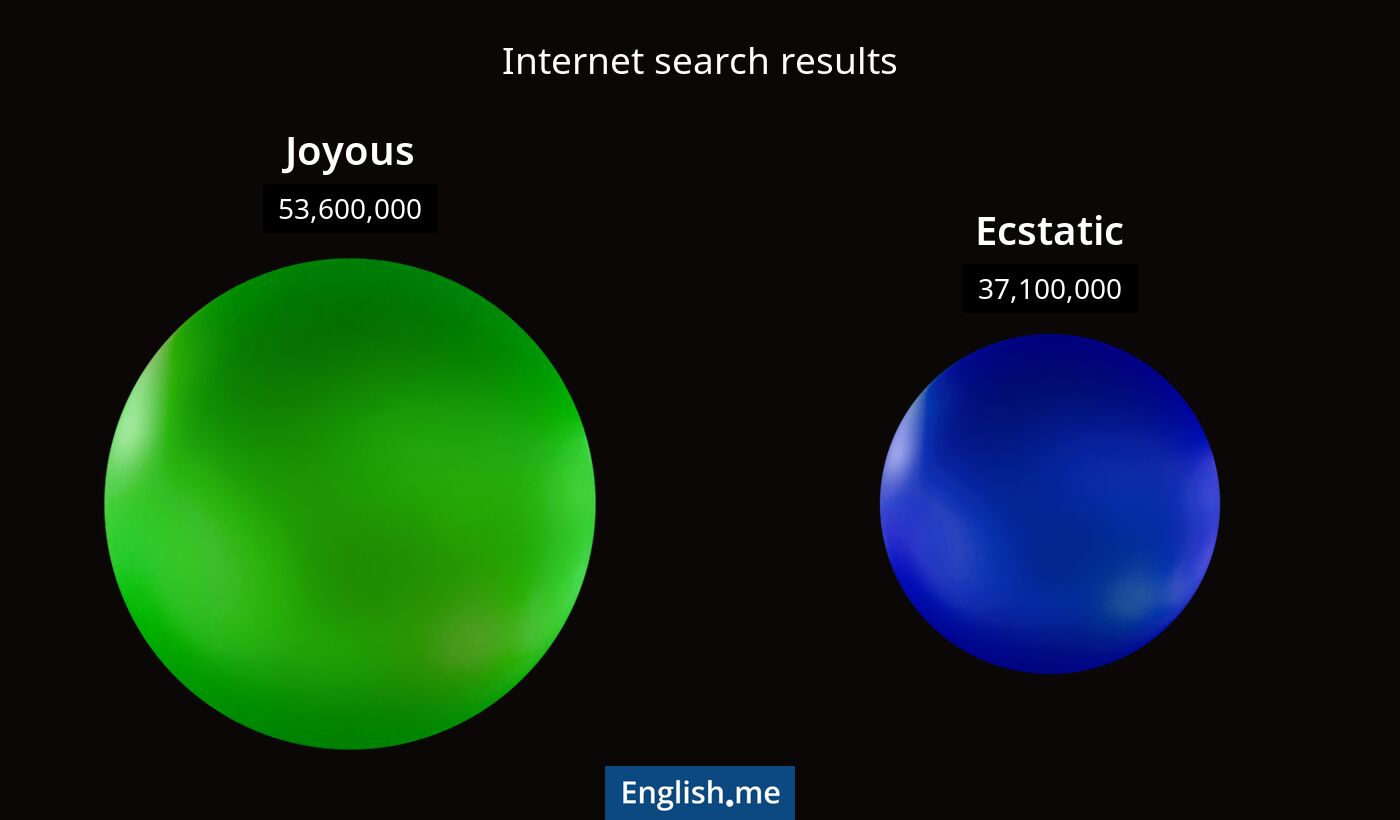"Joyous" vs. "ecstatic": navigating the spectrum of happiness
Reviewed and edited by  Lloyd Cooper 14/10/2024, 02:24
Lloyd Cooper 14/10/2024, 02:24
English.me team member

 What is similar?
What is similar?
Both "joyous" and "ecstatic" describe feelings of great happiness or delight.
 What is different?
What is different?
While "joyous" implies a state of joy, happiness, or celebration and can be used in a broader, more general context, "ecstatic" indicates an overwhelming feeling of joy or delight, often associated with a more extreme emotional state.
 Which one is more common?
Which one is more common?

 Examples of usage
Examples of usage
Joyous- The children were joyous as they opened their gifts.
- It was a joyous occasion with laughter and celebration.
- Her joyous smile lit up the room.
- She was ecstatic when she received the news of her promotion.
- The fans were ecstatic after their team won the championship.
- His face was ecstatic, unable to contain the joy he felt.

 English
English español
español française
française italiano
italiano deutsche
deutsche 日本語
日本語 polski
polski česky
česky svenska
svenska Türkçe
Türkçe Nederlands
Nederlands